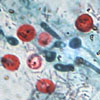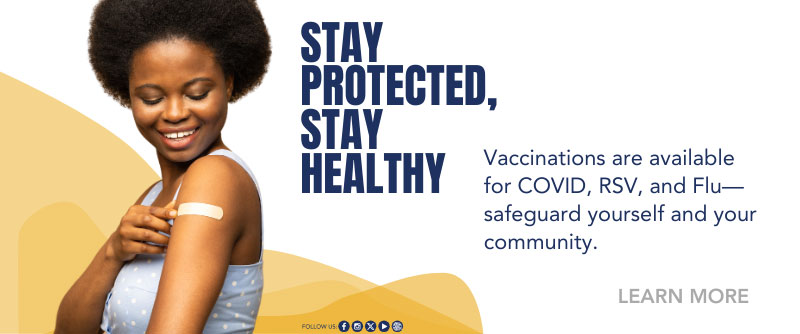
Cryptosporidiosis is a disease that causes watery diarrhea. It is caused by microscopic parasites called Cryptosporidium. This parasite can be found in the U.S. and throughout the world. “Crypto" can be found in water, food, soil or on surfaces. It can also be carried on hands that have been contaminated with the feces of humans or animals infected with the parasite.
On This Page
Symptoms
Symptoms generally begin 2 to 10 days after becoming infected with the parasite.
The most common symptom is watery diarrhea, but other symptoms include:
- Stomach cramps or pain
- Nausea
- Vomiting
- Fever
- Weight loss
- Dehydration
Groups Most Affected
People with weakened immune systems are most likely to develop serious illness.
Anyone can get crypto, but those with weakened immune systems are most likely to develop serious infection and possible long-term illness from crypto. Examples of people with weakened immune systems include:
- People infected with HIV
- Cancer or transplant patients who take drugs that weaken the immune system
- People with inherited diseases that affect the immune system
How It Spreads
Crypto is transmitted by accidentally ingesting small amounts of animal or human feces containing the parasite.
Common ways you can be exposed include:
- Swallowing water in swimming pools, water parks, fountains, lakes or rivers contaminated with Cryptosporidium.
- Swallowing contaminated water, ice or beverages
- Eating undercooked food or drinking raw (unpasteurized) apple cider or milk
- Touching your mouth with contaminated hands. Hands can become contaminated by touching surfaces or objects (bathroom fixtures, changing tables, diaper pails) that are contaminated.
- Contact with an infected animal
- Exposure to feces from an infected person through oral-anal contact
Preventing Infection
Handwashing is one of the best ways to protect yourself and other people from getting sick.
Keep your hands clean. Washing hands with soap and water after being around animals, babies, or areas with possible fecal contamination can help prevent infections. Alcohol-based hand sanitizers are not effective against crypto. Learn more →
Do not drink unsafe water.
- When camping, hiking, or traveling, always use safe water for drinking, cooking, brushing your teeth, or other activities. Treat or purify water that may be unsafe. Learn more →
- Don't swallow water when swimming or playing in lakes, ponds, streams, swimming pools, and backyard "kiddie" pools. Learn more →
Drink pasteurized milk and juices. Pasteurized milk and juices have undergone a process that kills harmful germs, including Cryptosporidium. Look for the word "pasteurized" on the label when shopping for milk, dairy products and juices. If in doubt, don’t buy it!
Practice extra caution with local food and drinks when traveling abroad. Uncooked foods should be avoided, and fruit and vegetables should be peeled or washed before eating. Learn more →
Practice safer sex. If you have had diarrhea, wait for two weeks to have any kind of sex (vaginal, anal or oral). Crypto parasites can remain present up to two weeks after your diarrhea ends.
If You Think You Have Crypto, or May Have Been Exposed
Most people who have healthy immune systems will recover from cryptosporidiosis without treatment.
If you think you have crypto, or may have been exposed:
- Contact your healthcare provider, especially if you have a weakened immune system.
- Stay hydrated by drinking plenty of fluids. Diarrhea and vomiting can lead to dehydration. Drink water, oral rehydration solutions, or clear broths to maintain hydration. Avoid excessive caffeine and alcohol as these can dehydrate you further.
- Get plenty of rest. Rest is important while your body fights off the infection. Avoid strenuous activity to help your body recover.
Avoid infecting others by:
- Staying home while you are sick: Stay away from work, school, or other public places to prevent spreading the infection to others.
- Practicing good hygiene: Wash your hands thoroughly with soap and water after using the bathroom and before handling food to prevent spreading the bacteria to others.
- Not preparing food for others until you are symptom-free, as the parasite can be transmitted through contaminated food.
Follow your doctor’s advice. If your doctor prescribes any specific treatments or interventions, be sure to follow their guidance closely. This may include medications for symptoms or advice on diet and hydration.
Additional Resources
